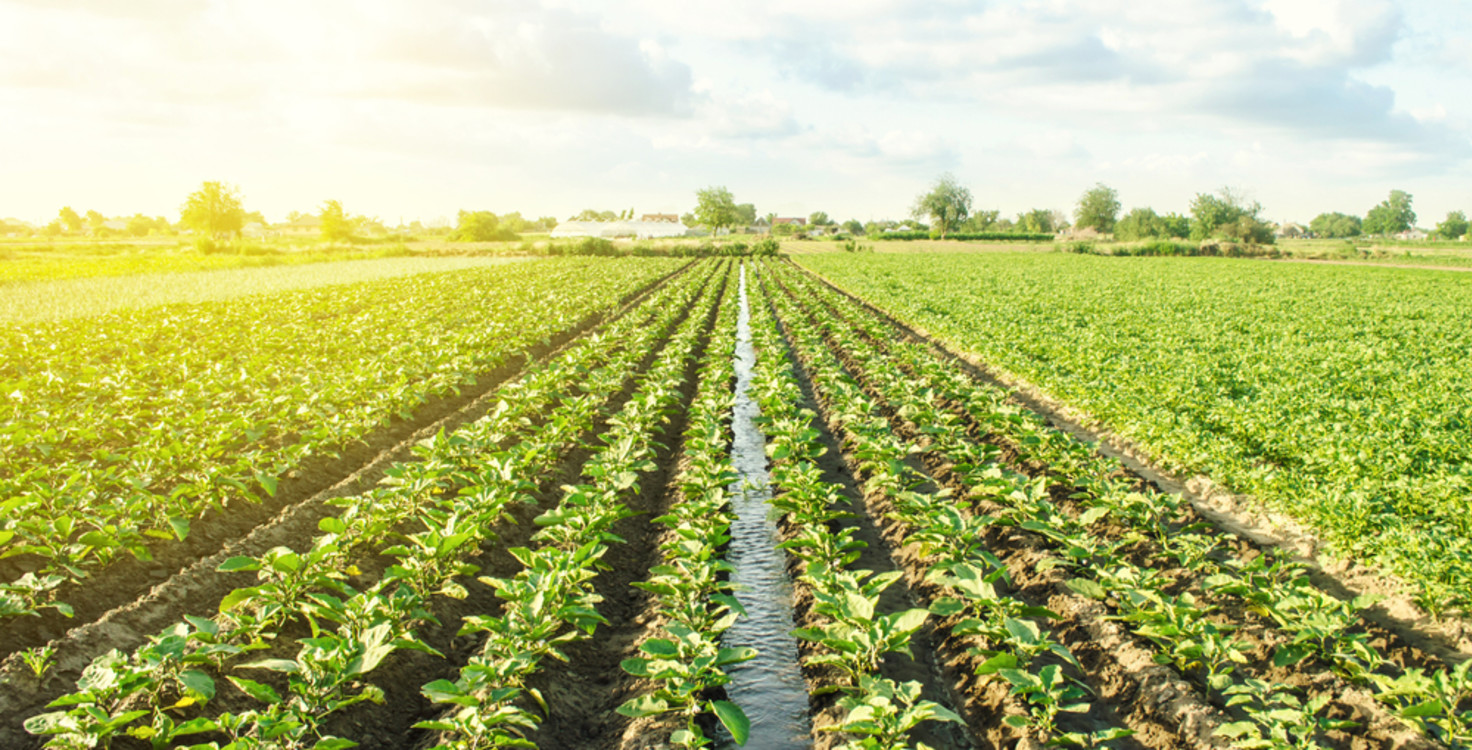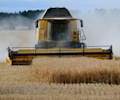FAIRR investor network conducts first-of-its-kind analysis into commitments on regenerative agriculture by 79 global food and retail giants, worth over $3 trillion and representing almost a third of the sector
64% (32/50)of agri-food companies that publicly report on regenerative agriculture as an opportunity, do not put in place any formal quantitative company-wide targets to achieve those ambitions
Only 8% (4/50)of companies that publicly report on regenerative agriculture as an opportunity have financial commitments in place to support farmers in their supply chain to incentivise uptake of regenerative agriculture
Regulatory risk: New laws in EU and UK, and new TNFD framework, puts revenue, value and reputation at risk with EU-based firms facing fines of up to 4% of revenue if marketing is judged to be misleading
A ground-breaking study of 79 global agri-food firms has found that 50 (63%) publicly refer to the potential of regenerative agriculture as a solution to the climate and biodiversity crises. However, of these 50 companies, 64% (32/50) including Chipotle, Domino’s and Bunge have not put in place any formal quantitative company-wide targets to achieve those ambitions.
Only 4 of these 50 (8%) companies have set financial targets to support farmers in their supply chain to incentivise the uptake of regenerative agriculture. Nestlé, PepsiCo, and JBSaim to provide significant sums of $10m or more and Sodexo’s Good Eating Company will dedicate 15% of its food budget to regenerative agriculture. Small donations to specific projects are excluded from these figures.
The research, undertaken by FAIRR, a network supported by investors with over $70 trillion in combined assets, found that with no internationally agreed definition of ‘regenerative agriculture’ considerable variation occurs in how companies describe its benefits. This lack of a clear definition makes regenerative agriculture claims hard to substantiate, creating significant risk in terms of incoming regulation and changing reporting frameworks.
The incoming EU Green Claims Directive, due to come into force in 2026, will put an onus on any food company marketing in the EU to substantiate claims such as those on regenerative agriculture, with the penalty for non-compliance reaching up to 4% of annual turnover. Similarly, new guidance from the UK Advertising Standards Authority (in effect this year) stipulates that any environmental claims must be fully verifiable and substantiated.
Earlier this month, some of the biodiversity risks that regenerative agriculture is designed to mitigate – including nutrient pollution, loss of pollinators and poor soil health – were named as key risks food companies should report against in the new, finalised Taskforce on Nature-related Finance Disclosures (TNFD) framework. Companies must be able to substantiate how they manage nature-related risks and opportunities, as well as their impacts on nature.
Jeremy Coller, Chair and Founder of the $70 trillion-backed FAIRR network, said:
"From soybeans to fish food, the agri-food sector is a significant driver of biodiversity loss and greenhouse gas emissions as it turns commodities into the food on our plates. It’s encouraging that two-thirds of the sector now report ‘regenerative agriculture’ as a way to mitigate this damage, but deeply concerning that only one third of these companies have implemented formal targets to institutionalise the take up of regenerative practices in their supply chain.
"FAIRR’s research shows there are more promises than progress in the agri-food sector. Investors will want to see measurable targets that match companies’ stated ambitions on regenerative agriculture if they are to ensure they don’t fall foul of anti-greenwash regulations."
Jo Raven, Director of Thematic Research & Corporate Innovation at the FAIRR Initiative, said:
"Increasing uptake of regenerative agriculture practices is key to addressing the climate and biodiversity crises. Transitioning away from conventional practices towards regenerative practices creates risk for farmers as it will likely require significant upfront investment, such as new machinery, agronomic support and experimentation, and could impact short-term productivity for farms.
"Only 4 of the 50 companies assessed by FAIRR have committed to de-risking the transition through some sort of financial support for farmers. Without adequate support for farmers, there can be no successful regenerative agriculture. Investors will want to see concrete action being taken to enable a just transition and ensure farmers do not bear the burden of change."
Shipra Gupta, Investments Stewardship Lead at Scottish Widows, said:
"As responsible investors, we are committed to actively engaging – directly, collectively and through our investment managers – with companies to establish clear, attainable targets for integrating regenerative agriculture practices into their operations. We also work with companies to influence their supply chains, to align with global climate and biodiversity goals. This approach isn't just about environmental stewardship; it's about bolstering credibility.
"Regenerative practices can support emissions reduction, enhance soil health, and secure food production for generations to come. By holding ourselves and our investee companies accountable, our mission is to lead the charge towards a greener, more sustainable agricultural industry, one grounded in actions, not just intentions. Together, we can transform the future of agriculture and build a resilient food system for generations to come."
Alessia Lenders, Head of Impact, SLM Partners, said:
"Regenerative agriculture can build resilience to climate change, improve soil health, and make land management sustainable in the long run. It can also unlock financial opportunities for farmers through premium pricing on regenerative products and reduced input costs. Supporting farmers through this transition is crucial as farmers are ultimately the ones who can deliver positive outcomes to soil health, climate, biodiversity, and water."
Other findings in FAIRR’s research:
63% (50/79) of analysed companies explicitly discuss ‘regenerative agriculture’ in public reporting. However only 36% of these firms (18/50) have put formal quantitative targets in place.
There is no agreed definition of ‘regenerative agriculture’ nor the outcomes companies are looking to address through regenerative agriculture. FAIRR’s analysis found that ‘soil health’ and ‘carbon-related’ outcomes were the two most cited sustainability outcomes. These were followed by ‘Improving water use and quality’, ‘biodiversity’, and ‘reduced use of agrochemicals’. Social outcomes related to farmer incomes, just transition and other economic themes (often referred to as livelihood in corporate disclosures) were the least cited.
Only 8% (4/50) of companies) of companies that publicly report on regenerative agriculture as an opportunity have financial commitments in place to support farmers in their supply chain to incentivise the uptake of regenerative agriculture.
The report highlights several positive examples of regenerative commitments made by leading companies across the agri-food value chain. For example, Danone committed to sourcing 30% of key ingredients from farms transitioning to regenerative agriculture by 2025; General Mills to implement regenerative agriculture practices on 1 million acres of farmland by 2030; and Walmart, through a collaboration with PepsiCo has set a target to eliminate 4 million tons of greenhouse gas emissions through its regenerative agriculture programme.
Notes to editor
For more information or to speak with a FAIRR spokesperson, please contact:
Mike Marshall, ESG Communications
t: +44 (0)20 3128 7464 | e: mikem@esgcomms.com
About FAIRR
The FAIRR Initiative is a collaborative investor network, founded by Jeremy Coller, with a membership of $70 trillion in collective assets of support. FAIRR works with institutional investors to define the material ESG issues linked to intensive livestock and fish farming systems and provide them with the tools necessary to integrate this information into their asset stewardship and investment decisions. This includes the Coller FAIRR Index, the world’s first comprehensive assessment of the largest global animal protein companies on environmental, social and governance issues. Visit www.fairr.org and follow @FAIRRInitiative.
Methodology
FAIRR assessed public disclosures (including annual and sustainability reporting, company websites and press releases) for 79 listed agri-food companies with a combined annual revenue of US$3 trillion. The framework used to assess corporate disclosure is based on a total of 32 indicators across five key themes: desired sustainability outcomes, targets, strategy, pilot projects and company data collection and tracking.
Scottish Widows and SLM Partners are members of the FAIRR investor network.











